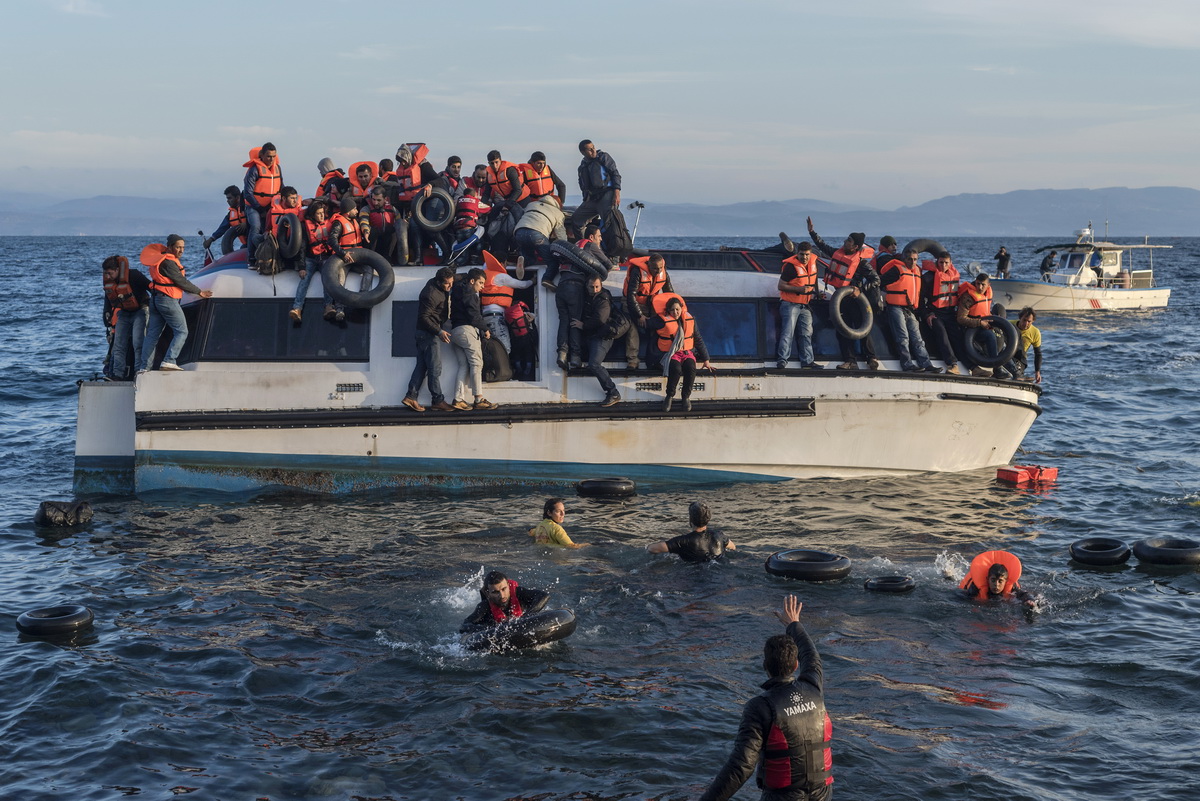In the last few years, tens of thousands of people have left their homes and crossed the Mediterranean Sea. The media is constantly publishing stories of drowning migrants and of the harsh conditions of detention centres in Southern Europe. At the same time, the attitude towards migration has hardened in many European countries. Countries like Italy, Austria and Hungary have shown that there is very little humanity left.
Matteo Salvini, the Minister of Interior of Italy, has stated that Italy wants to stop being Europe’s refugee dump. In the past years, various Italian coastal towns have become major hotspots for the registration of migrants in Europe. As a right-wing leader, Salvini has spoken loudly against migration from North Africa. Very recently, he declared that he would start deporting the majority of migrants, mostly economic ones, who tried to enter Italian territory. One of his plans is to remove humanitarian protection for those not eligible for refugee status and change it to a special permits system that would not allow migrants to stay in Italy without a refugee status.
With the rise of right-wing politics, Italy has banned the work of humanitarian aid workers in its territorial waters and has threatened those who facilitate Migrant’s access to Italian territory with detention. Even though humanitarian aid is much needed, saving lives is now becoming more and more challenging both in the sea and on land.
Humanitarian aid organisations have been accused of encouraging migrants to take the dangerous journeys across the Mediterranean. Some claim that migrants are more willing to take the risk knowing that rescue ships would not let them die. Moreover, these organisations have also been accused of working with organized smuggling networks in North African countries. There is very little proof for these accusations but, nevertheless, these have been the arguments used against supporting humanitarian aid for migrants and some governments are withdrawing their support to rescue organizations based on this. The current situation is alarming: European boats are not allowed to lawfully return migrants to countries like Libya and aid workers can no longer take the rescued ones to Italian territory. If they try to take them to Italy, they will be refused entrance. As a result, several migrants are left with nowhere to go.
The migration crisis has shown us that there are various gaps in the current legislation, both on the national and international level. Namely, it is still unclear if humanitarian aid workers and rescuers are working legally or whether they are criminals in the Mediterranean. At the moment this it is the choice of each member state to exempt humanitarian assistance from criminalization or not – this has to change urgently. Italy’s example shows us that in the current political European setting it is possible to criminalize rescue NGOs, close seaports and reduce humanitarian protection without having any effective consequences for doing so.
Criminalizing humanitarian aid is not an answer to the crisis. All European countries have to respect the protection of migrants and recognise that every person has the right to assistance. In a moment in which far-right politics are rising in today’s Europe, it is important to fight racism and xenophobia. Solidarity should be put back to the centre of the discussion when addressing the topic of migration in Europe. The EU has to take a clear stance and should not allow other member states to make changes to migration policy similar to those done in Italy.














Leave a Comment
Your email address will not be published. Required fields are marked with *